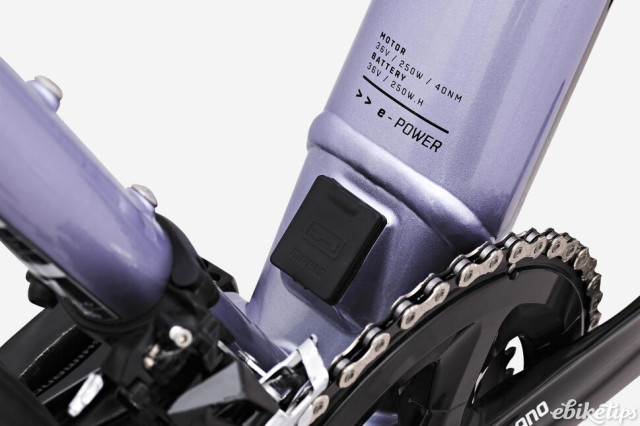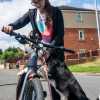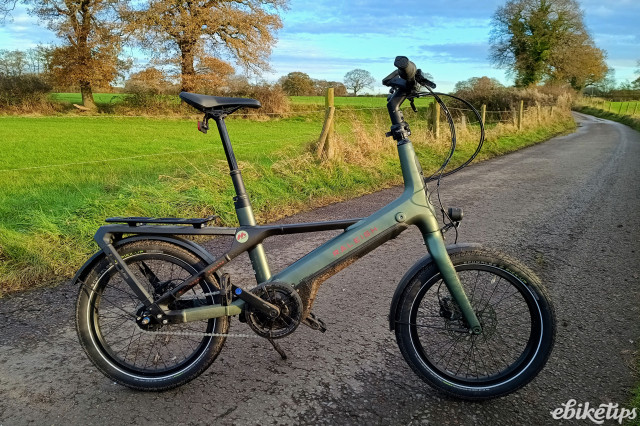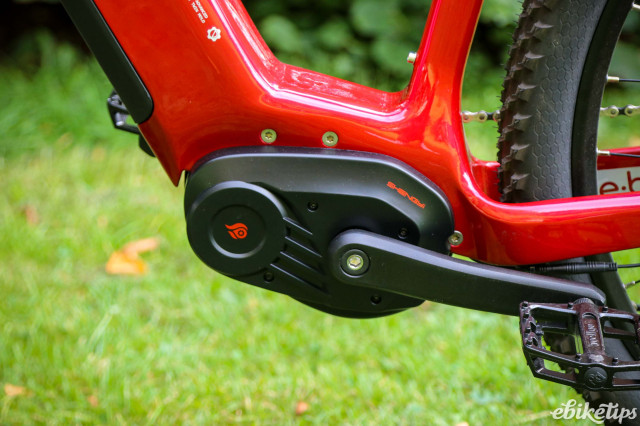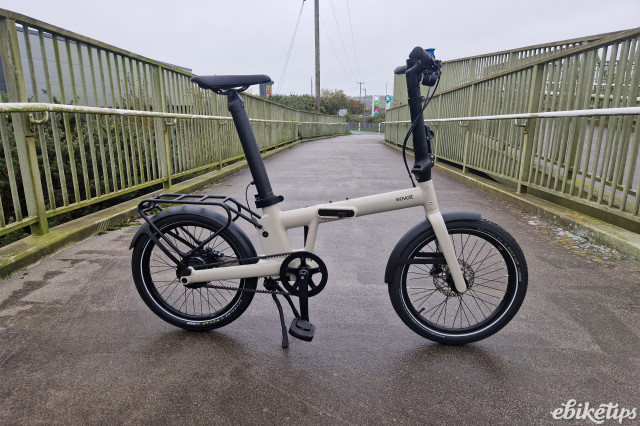Nestled in the industrial area of Lille is the Decathlon HQ. It’s how I imagine the Google campus is. It’s got plentiful cycle lanes into and out of the area, there are testing grounds for all the different sports products Decathlon makes, and there’s even a virtual reality gaming room next to a bar and restaurant. And it’s here that Decathlon, or should we say, Van Rysel, is plotting further expansion in the e-bike world.
I was lucky enough to visit the HQ and take a look around the on site factory, as well as the offices of the Van Rysel team – which, situated up a spiral staircase and overlooking the local space engineering firm, are completely separate to other Decathlon brands.
Who is Van Rysel?
Wim Vanhoecke is the e-bike product manager for Van Rysel and he spoke to me via video call after my visit. He has so far seen a few e-bikes launched under his tenure. But that’s just the beginning.
You may be wondering what the difference is between a Van Rysel e-bike and a Decathlon B’Twin or Rockrider e-bike. Essentially, each brand represents different disciplines of riding – electric or not.
Rockrider is for the mountain bikes, B’Twin focuses on urban and city bikes, and Van Rysel is focused on road and gravel. If you’re a fan of road racing, you’ve likely seen that the WorldTour team Decathlon AG2R Mondiale have been using the brand’s aero race road bike, the RCR. The brand has also just opened up its first shop in London.
Why the Van Rysel name for e-bikes?
So big things are on the cards for Van Rysel as a whole, but what about e-bikes specifically?
“We want to make bikes for everybody,” said Vanhoecke. “We decided to launch a full range of electric gravel and road bikes because people were asking for it. It’s been an opportunity to make them accessible for this end of the market.
“People that ride road bikes, generally, are older. And if you live in a hilly region then it can be difficult to keep riding as you once did. So, people like electric bikes to take the suffering out of climbing, to enjoy the countryside, and continue to ride as they once did.”
Van Rysel is unique, in that the brand already has a lot of valuable customer insight from Decathlon customers. From purchasing habits to reviews on previous e-bikes, it all helps Van Rysel to determine what might work with their own range.
“It helps us to make some smarter choices,” continued Vanhoecke. “We won’t make bikes for the sake of it. We don’t want to just make another bike because we can – there needs to be a need for it.”
The Van Rysel electric bike range and their target audience
Currently, there are three electric road and gravel bikes on the market from Van Rysel, and they’re at pretty affordable price points, hovering around the £2k mark. But they aren’t just rebadged B’Twin or Rockrider bikes, they’re designed in-house and then assembled quite literally downstairs on the Lille factory floor. This is something that the brand expects to do for a while.
“They are all made in our factory in Lille,” said Vanhoecke. "And especially now in the early years of the bikes, we want to keep the assembly close to our office so we can go to the factory almost every day. And I think it's probably going to be like this for the coming years.”
> Best electric gravel bikes 2024 – the best e-bikes to keep you going off-road or on your commute
So who are Van Rysel’s main audience? Are they targeting more premium customers like they are with their race-winning road bike(s)? Not quite. Instead, they’re looking at two main types of people. The first is riders who are getting older but want to remain fit and active and to continue doing the longer rides they enjoy, and the second is women.
Vanhoecke continued. “The Van Rysel range is ideal for people who are getting a little bit older and still want to continue to ride. But equally, there is a second audience. What we see from our market research is a big share of women are also interested in this segment, much more than in the acoustic bikes.
“And what’s interesting is that the women that buy e-bikes tend to be younger. We’re not just selling to older people; I think that’s a little bit of a cliché. When we see the reactions from customers about our bikes, many times we hear, 'I feel like I have my legs from 20 years ago again!'
“Or something like that - and of course, at Van Rysel, we want to make bikes for everybody. Not only, of course, because we are known - especially now for the high-end race bikes for the pro team. But we’re more than that. We make bikes for everybody.”
What does the future hold for Van Rysel?
The bikes for everybody are about to see an expansion, with a carbon fibre electric gravel bike set to make its way into the market next year.
Currently, the brand favours the Mahle X35 hub motor system, and while I saw some e-bike motors being manufactured in the factory – the reason you’re not seeing imagery of that is because they’re not ready for use. The new e-gravel bike will likely use Mahle’s X20 system as Van Rysel looks to a lighter option in this sector.
“It’s ideal for people who also want to ride without the assistance, or ride more than 25kph when the assistance cuts out. So the bike needs to ride like an acoustic bike, not so heavy. But when you take a corner, the motor kicks in and helps you, saving you energy.
> Best electric bikes under £2,000 2024 – affordable e-bikes across a range of categories
“By the second half of next year, there will be a new gravel bike, which will be our most accessible bike. We want it to be very versatile, compatible with mudguards, racks, lights etc. We say it’s a bit like a Swiss Army Knife bike, because it will also serve as commuter bike.”
UK customers will be pleased to hear that, “the UK is one of our priority countries.” And that the full range of electric Van Rysel bikes will be made available to us. Unfortunately, I didn’t get the chance to test ride an e-Van Rysel bike, but we hope to be able to get some of the range in for testing soon, so keep your eyes peeled for reviews.
